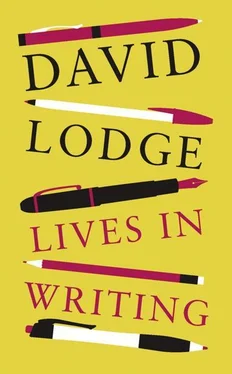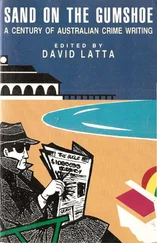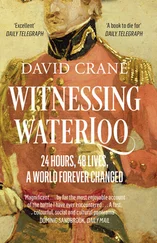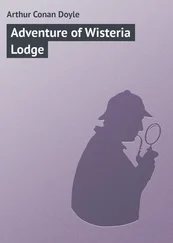During this trip Greene made the acquaintance of a French couple, Jacques and Yvonne Cloetta, and Yvonne probably contributed something to the character of Marie, the young wife of the colon Rycker in A Burnt-Out Case. Some months later she returned to the South of France with her children, leaving her husband working in Africa, and Greene commenced an affair with her which, rather amazingly, they managed to conceal from Jacques for eight years, after which he seems to have condoned it, on condition that they were discreet. In the mid-1960s Greene made his principal home in Antibes, where Yvonne lived, and they settled down into a relationship which lasted until the end of his life. During this decade Catherine’s health began to deteriorate: surgery after an accident was botched, and Sherry thinks she became an alcoholic. Greene told her about Yvonne, for whom he said (in a letter of 1967) he had ‘a real quiet love. . “peaceful as old age”’, in contrast to their own ‘tormented love — love which made one more happy and sometimes more miserable than I’ll ever be again. . I always remember that never for a moment have I ever been bored by you — enraptured, excited, nervous, angry, tormented, but never bored, because I lost myself in searching for you.’ But his letters became less frequent and the relationship slowly atrophied, as Catherine became chronically ill and they met at longer and longer intervals. She died of leukaemia in 1978, her beauty wasted, and refused to let Greene see her in her last illness. Harry Walston wrote a remarkably magnanimous reply to the remorseful letter of condolence Greene apparently sent him: ‘You should not have remorse. Of course you caused pain. But who can honestly say that he has gone through life without causing pain? And you gave joy too.’ From then onwards Yvonne was the only woman of consequence in Greene’s life.
Though Greene acquired the apartment in Antibes in 1966 in order to be near Yvonne (he already had a flat in Paris), the decision to settle permanently in France at this time was taken for quite other reasons. His financial affairs were in crisis. Greene had entrusted a great deal of his money (and his royalties must have been considerable ever since The Heart of the Matter became a world bestseller in 1948, not to mention the income from his plays and films) to his accountant, one Thomas Roe CBE, a well-connected and highly respected man who undertook to protect it from the high rates of British income tax by using foreign tax havens and tax-efficient investment schemes. Greene was not his only distinguished client — Noel Coward and Robert Graves also availed themselves of his services. Roe, however, turned out to be a swindler, with criminal associates and mafia connections. One of the companies he was involved in collapsed spectacularly in 1964. In 1965 he was arrested in Switzerland and charged with abuse of confidence, fraud, and passing counterfeit dollar notes. In 1968 he was convicted and sentenced to six years’ imprisonment. Greene not only lost a great deal of money by Roe’s perfidy — according to his good friend, the film director Peter Glenville, ‘Graham, through Roe, lost all , repeat all ’ — he also became liable for a hefty tax bill. And according to Sherry, ‘there was a chance that the British authorities, if Greene had not become domiciled in another country, and had he not been willing to pay back what he owed, might have attempted to secure his arrest’. Sherry is irritatingly vague about this matter, as he often is when you most want hard facts from him. But it is obvious that this episode caused Greene much anxiety and despondency, which, as Sherry observes, seem to be reflected in his troubled visage in the photographic portraits made by Lord Snowdon at the time. It explains a lot, too about his subsequent lifestyle. Many visitors to his Antibes apartment, myself included, were surprised by its modest scale, but at the time he bought it he was hard pressed for cash. ‘I live on a shoestring and a Swiss overdraft,’ he wrote to Catherine on 10 June 1966. In due course his fortunes recovered, and according to Yvonne Cloetta, when towards the end of his life he asked his lawyer for a rough estimate of his wealth he was astonished at its size. For a long time he had arranged to be paid a regular income from a company set up for the purpose. Personally he was never a big spender, and according to Shirley Hazzard he was parsimonious to the point of meanness in trivial matters, taking buses rather than taxis home from Gemma’s restaurant on Capri, and being reluctant to turn up the central heating in his villa Il Rosario on chilly days. But he was often generous with gifts to causes and individuals. The value of his estate at death seems to be unknown, perhaps because he died in fiscally secretive Switzerland. In a footnote Sherry quotes the Toronto Star (a surprising source) stating that it was only about £200,000, commenting: ‘I doubt that this is the whole story, but I know he gave away vast sums to friends and family through his corporation Verdant.’
The Thomas Roe episode is one of the most interesting revelations in Sherry’s third volume, because Greene’s tax exile had important consequences for his literary career. His visits to England were henceforth severely restricted (he writes to Catherine in 1967 that he will receive an honorary degree in Edinburgh ‘If the tax people allow!’) and he gradually lost touch with, and seemingly interest in, his native country. It is a matter for regret that the acute and eloquent observation of English culture and society in the novels up to The End of the Affair is not to be found in the later ones. When he did set a late novel mainly in England — The Human Factor (1978) — his descriptive touch was not as sure as it used to be, and his social focus narrower. Nor did he write very much about his adopted country, France. Instead, the practice established by The Quiet American, Our Man in Havana and A Burnt-Out Case continued: he went hunting for material in exotic locations and trouble-spots: Haiti, Sinai, Northern Ireland, Russia, Argentina, Paraguay, Panama, Nicaragua. He acquired a reputation for anticipating where a political crisis would soon take place, and rather enjoyed it: ‘A few days ago The Times reported a plot against the President & three colonels arrested — so I seem to have picked right again,’ he writes gleefully to Yvonne from Paraguay in July 1968. Not all these trips produced novels, but they usually yielded a non-fiction book, or journalistic articles, or letters to the press.
In later life Greene frequently used his status and celebrity to intervene in international politics. Sometimes this was entirely to his credit, as when he gave support to the Soviet dissident writers Sinyavsky and Daniel in 1967 by publicly requesting that his blocked Russian royalties should be paid to their wives, because he had no desire to revisit the country as long as they languished in prison; but he went on to say that this should not be taken as a criticism of the Soviet Union, where he would choose to live in preference to America. Commentators were quick to point out that in such a case it would not be long before he shared the fate of Sinyavsky and Daniel. Greene’s political gestures were seldom free from paradox, inconsistency or internal contradiction. The often-quoted statement in his 1969 Shakespeare Prize acceptance speech, ‘The writer should always be ready to change sides at the drop of a hat. He speaks up for the victims, and the victims change’, is not the all-accommodating loophole he claimed it to be. At about the same time as the Sinyavsky — Daniel affair, he gave considerable offence in Britain by writing an admiring introduction to the autobiography of his old Secret Service colleague, the traitor Kim Philby. Greene wrote: ‘He betrayed his country — yes, perhaps he did, but who among us has not committed treason to something or someone more important than a country?’ This is pure sophistry, because ‘country’ in this context was not an abstraction but a human community, including many British agents whom Philby sent to certain death. Sherry recalls that when he pressed Greene to condemn those deeds of Philby, he uncharacteristically became red with anger, and refused to do so.
Читать дальше












